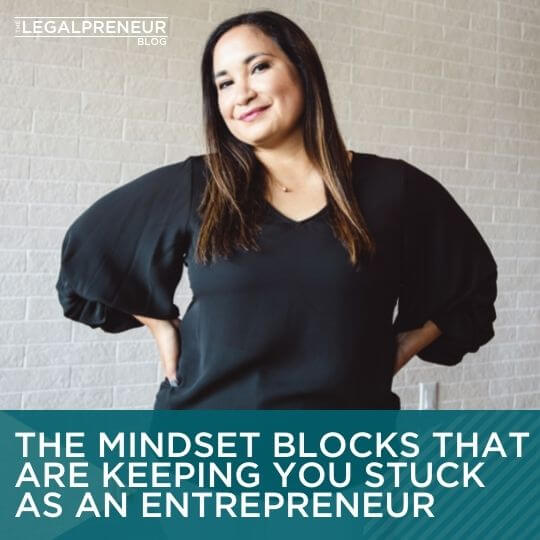So you’ve decided to start a business. Congratulations! It takes courage to take a dream you’ve spent months or even years ruminating over, and put it into action.
But here’s the thing. Sometimes, we’re so afraid of our own success, that we sabotage ourselves before we can even start. It doesn’t matter how high achieving you are, or the degrees on your wall — there’s something about starting a company that will trigger all of your insecurities, and mirror to you the ways you’ve been holding your own talents hostage.
I know, because it’s happened to me. It’s almost as if your business becomes your trigger. Abandonment issues? Fear of failure? Anxiety about showing up as your full self? Your business is going to make you face all of that, sometimes in a single day. Sometimes before 10 AM.
It’s not money that can make or break your business — it’s you. Sure, money is important. But no amount of revenue is enough to make up for a business owner with a dysregulated nervous system. Think about it this way: if you have insecurities around money, or what it means to make a lot of money, you will subconsciously self-sabotage your business. Our brains are constantly in a state of trying to keep us safe. The problem is, we define safety as the behavior that was modeled to us. If you associate money with greed, or conflict, your subconscious mind will try to keep you safe by keeping you stuck at a dollar amount that’s safe.
Seem familiar? We often think of bad financial management as a superficial issue that can be unlearned by understanding how to budget. But, if the issue is in your subconscious mind, sometimes no amount of budgeting is enough.
It’s about more than just money though. We sabotage ourselves in countless ways, and then roll our shoulders and say, well maybe being an entrepreneur just isn’t for me. But that couldn’t be further from the truth.
Here’s a few ways I’ve seen entrepreneurs stand in the way of their own success:
Not asking for help when you need it.
When you’re bootstrapping your own business, it’s easy to get stuck on this notion that you should be doing everything yourself. I mean, how hard is it to create your own content and post on social media? (Answer: it’s hard). The one thing I’ve learned is that if you struggle with asking for help, or hiring and retaining a support team, your business will not less. There is no pride in working yourself to exhaustion, and your business will pay the price for it. If you can’t afford to hire support, offer energy exchanges. Stick to what you know, and allow the experts to do their job.
Ignoring the legal side of your business.
This is often tied to what we believe we are worth, or what our ideas are worth. If you’ve found yourself repeatedly saying that investing in your business or your ideas are too expensive, I urge you to ask yourself why? There are countless ways that you can legally protect your business, without breaking the bank. The issue isn’t finances, it’s believing your ideas are worthy of protection.
Trying to be like everyone else.
I run a 7-figure law firm. I started my practice a year after graduating law school, because I got fired from my comfortable big law job. After packing up my office, I already knew my next steps were going to be unconventional. I wasn’t going to look for a new job — I was going to start my firm. And even though I had all the confidence in the world, I’d be lying if I didn’t admit that other people’s skepticism made me wonder if I really had what it takes. Here’s the thing though — that desire to be accepted and liked by everyone else didn’t go away after I had my first 20 k month. I was clearly running a successful law firm just by being myself. But it’s easy to lose yourself in this idea of being who you think you “should” be. There’s a traditional path for lawyers. There’s a way you’re told things should be done. If I did any of those things, I wouldn’t be running the business of my dreams, living a comfortable life, with ample time to take care of my two kids. Trying to be like everyone else is the surest way to building a life that you’ll eventually want to run away from.
The biggest growth I’ve seen in myself, both personally and professionally came when I trusted myself enough to start my business. And then trusted myself again to do the deep inner work that’s required to be a successful business owner. You deserve a sustainable business. But to build out that legacy, you need to believe that you deserve it at a subconscious level.
Here’s to doing the work.


